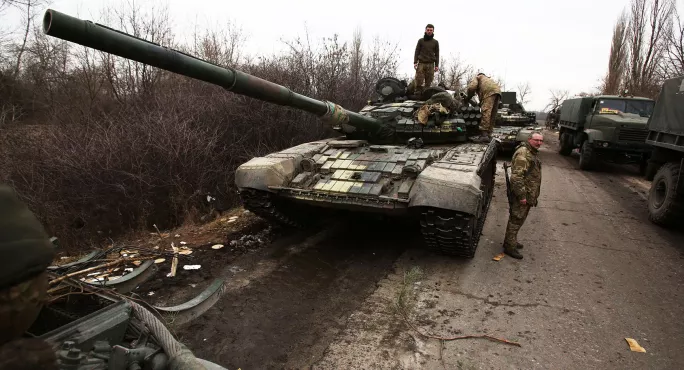When I came to write this week’s leader, I wasn’t short of education news to comment on. There seems to be no end to the stream of new policies and guidance documents being released by the Department for Education lately. I even had a topic all lined up.
But, waking up yesterday morning to the news that Russian troops have moved to invade Ukraine, there seemed to be something bigger to focus on.
While the conflict in Ukraine is still somewhat removed from our day-to-day lives here in the UK, it is hard not to dwell on what the bigger implications might be. As I was waving my two-year-old daughter off to her childminder this morning, I found myself wondering whether there were parents in Ukraine doing the same thing or if such simple acts of normality had already ground to a halt. “What would I do in their position?” I thought. “Where would I turn? How far would I go to keep my daughter safe?”
I know that I’m not the only one having these thoughts - people around the world will be experiencing the same. A friend of mine, also a mother, who lives in Sweden, messaged me on WhatsApp yesterday, as we both watched the same news over our morning coffee.
She, too, was worried about what all of this might mean, especially on the back of the upheaval of the pandemic.
“I kind of envy my son now,” she wrote. “I wish I was 5 and didn’t watch or care or understand what goes on in the world.”
DfE impartiality guidance: teachers talking about the Ukraine crisis
My daughter is also too young to understand, but there are plenty of children who are not. Today, in those schools that are not on half-term, pupils will be asking questions and raising concerns. This won’t be constrained to history or politics classes, it will be happening throughout the day: in tutor time, in maths lessons and in corridors.
I have every confidence in teachers to have those discussions. I know from experience - both from working in classrooms myself and from visiting schools as a journalist - that school staff will approach these conversations tactfully and with regard to the individual circumstances of the pupils they teach.
This is the invisible work of teaching: it’s what goes on all the time, in the background, alongside delivering the essential curriculum knowledge and skills that children need. This work has been happening throughout the pandemic, and it will continue to happen now. Yet this part of the job rarely gets the recognition it deserves.
Government ministers might point out that this is exactly what their new guidance on political impartiality in schools aims to do - officially recognise the role that teachers play in leading difficult conversations, and provide them with support in this area.
This is certainly how education secretary Nadhim Zahawi characterises the new guidance, which has received a mixed response from teachers. He has pointed out that discussions about politically contentious topics have, “at times, been difficult for school leaders, teachers and staff, as they navigate how to handle and teach about these complex issues sensitively and appropriately”.
The new guidance, he stressed, makes sure that “no subject is off-limits”, while providing teachers with clarity about how to remain impartial and discuss issues in “an age-appropriate way, with sensitivity and respect”.
In theory, there’s nothing wrong with this aim, but the problem with the guidance is that it assumes that teachers do not already know how best to approach these issues (or it implies that they are failing to follow existing impartiality rules), despite the fact that they are the ones having these discussions with children daily.
Arguably, this speaks to a wider problem around priorities, and the mismatch between what the government thinks schools need help with and what schools actually say they need.
Because the guidance issued last week almost certainly won’t be read by teachers this morning before they talk to students. They will be just getting on with the sorts of conversations that will happen today - they know how to do it and always have done.
Perhaps, though, more fundamentally, we should be thankful that teachers and pupils are in school to discuss these issues at all, when people in Ukraine are facing a future where the simple act of waving your child off at the childminder could suddenly be snatched away.
Helen Amass is commissioning editor, teaching and learning at Tes. She tweets @Helen_Amass




